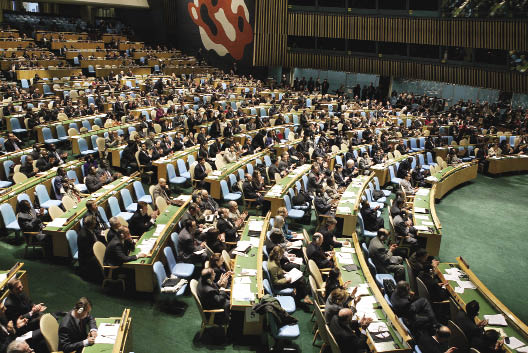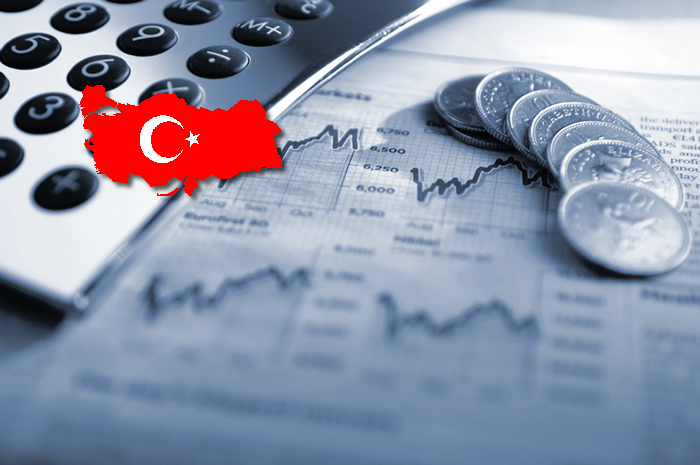Turkish Government Changes Priority for Stability Due to Crisis
‘Turkish growth may stand at 6 or 7 percent’ by the yearend, Ali Babacan says. AA photoTurkey is withdrawing from an aggressive economic growth strategy amid global recession concerns, according to statements made Thursday by Deputy Prime Minister Ali Babacan.
“We have neither a goal nor an expectation of fast growth in the upcoming period,” Babacan said, speaking on broadcaster CNBC-e. “Stability is our priority.”
“Turkish growth may stand at 6 or 7 percent” by the year’s end, Babacan said, adding that this was not a concrete estimation.
“It is hard to guess the external effects on 2011 growth,” he said, referring to recent moves by the European Central Bank and U.S. Federal Reserve to address the financial crisis.
His statements came a day after Prime Minister Recep Tayyip Erdoğan called for less spending amid a week-old shift in monetary policy. Economists speaking to the Hürriyet Daily News also agreed that the ruling Justice and Development Party, or AKP, is signaling stabilization in the economy instead of robust growth, which stood at 11 percent in the first quarter of the year.
“We will not allow the crisis psychology to hold us captive,” Erdoğan said Wednesday while speaking to his party fellows in Ankara.
The prime minister called on citizens to “avoid irresponsible spending” and favor investment in property over items such as new cars. “Don’t buy luxurious houses or cars,” he said.
The statements came amid the Central Bank’s struggle to defend the Turkish Lira’s value with several tools including buying U.S. dollars.
Repeating Erdoğan’s spending-cut call, Babacan said a comfortable and calm period would come if everyone spent in accordance with their earnings.
The deputy prime minister also said some new measures may be taken to cut the country’s credit growth.
“The statements of Ali Babacan, deputy prime minister of Turkey, indicated that Turkey is readying for major structural reform soon,” Serkan Çevik, a strategist for Halk Invest in Istanbul, told the Daily News in a phone interview Thursday.
Referring to a statement Tuesday by Finance Minister Mehmet Şimşek, who said Turkey would inevitably be affected by big global turmoil, Çevik added: “In order to decrease the volatility of the country against such shocks, not only the captain has to be talented, but also the ship should be safe with no cracks in its hull.”
He said the decision makers in Turkey understood that the country cannot continue with its widening current account deficit and that external funding would not be sufficient enough to fight it.
The government has chosen slow but stable growth in a bid to control the current account gap, said Nurhan Toğuç, the chief economist at Ata Securities in Istanbul. “Babacan’s statements also show a 7 percent growth could only be achieved under conditions of lower dollar, 0 percent interest rate and a shortage in credit volume,” Toğuç added. “Turkey might grow more, but it is risky.”
The moves by the Central Bank are also in the same direction with the deputy prime minister’s statements, she said.
The global crisis is likely to continue, said Professor İzzettin Önder, a lecturer at several Istanbul universities. “It is obvious that Turkey will also be affected. No economist would believe it if [the government] said the opposite. So Turkey has revised its expectations and shifted its policy toward stable growth at 6 percent,” Önder said.
“[Babacan] started highlighting the importance of stability as volatility increased recently in the Turkish economy due to downward movements in global markets,” Banu Kıvcı Tokalı, chief executive of Destek Securities, told the Daily News by phone Thursday. She said Turkey was aiming to sustain stability through an export-oriented model.
“Turkey interferes with exchange rates to keep the Turkish Lira low, which actually puts financial stability at risk,” said Tokalı. According to her, the message that will be given to the markets through the end of September with an updated “Middle Term Program” carries significance. “If the reform package injects trust into markets, this would play an important role for economic stability,” she added.
Earlier Thursday, Turkey’s top business boss made a similar call for a stable economy. “In order to increase Turkey’s competitiveness and resistance, the Turkish banking sector needs to be cared for and financial stability should be sustained into the next term ahead of us,” Ümit Boyner, head of the Turkish Industry and Business Association, or TÜSİAD, said at a meeting in Istanbul.
SOURCE: HURRIYET DAILY NEWS
11.08.2011




